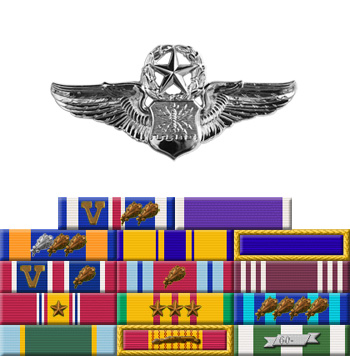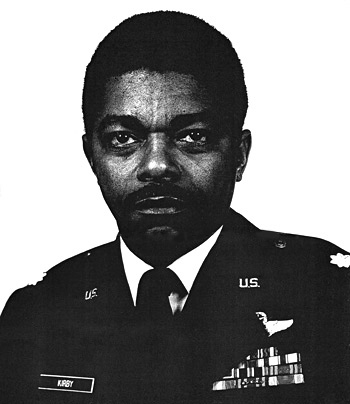
|
Bobby A. Kirby |
 |
|||
| Rank, Service | ||||
Colonel O-6, U.S. Air Force |
||||
| Veteran of: | ||||
|
||||
| Tribute: | ||||
Bob Kirby was born on July 11, 1931, in East Point, Georgia. He enlisted in the Aviation Cadet Program of the U.S. Air Force for Navigator Training on November 6, 1952, and was commissioned a 2d Lt and awarded his Navigator Wings at Mather AFB, California, on December 11, 1953. After completing Navigator-Bombardier training, Lt Kirby was assigned to the 31st and then the 23rd Bomb Squadron at Travis AFB, California, where he flew on RB-36 Peacemaker bombers from June 1954 to December 1958, and then on B-52 Stratofortress bombers from February 1959 to August 1966. Maj Kirby then transferred to the 69th Bomb Squadron at Loring AFB, Maine, where he flew as a B-52G Radar Navigator from August 1966 to May 1969, followed by service as a Navigator-Bombardier on B-57 Canberra tactical bombers with the 13th Tactical Bomb Squadron at MacDill AFB, Florida, from May 1969 to September 1970. He then deployed with the squadron to Ubon Royal Thai AFB, Thailand, and flew combat missions from September 1970 to June 1971. Maj Kirby transferred to the 340th Bomb Squadron at Blytheville AFB, Arkansas, once again flying as a Radar Navigator on B-52's, from June 1971 until he was killed in action while deployed to Southeast Asia for Operation Linebacker II on December 21, 1972. Kirby was promoted through the ranks to Colonel while he was listed as missing in action, and his remains were returned to the United States on December 15, 1988. |
||||
|
||||

